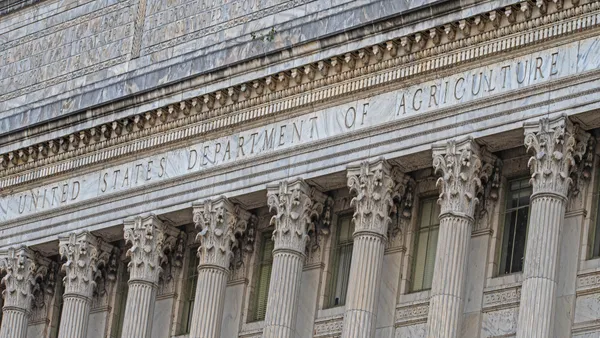Dive Brief:
- Business for Social Responsibility, a nonprofit consultancy focused on sustainability, published a social justice guide for companies on Wednesday, aiming to “establish a framework for change.” The guide is made in collaboration with BSR’s Center for Business and Social Justice, which works with the private sector to advance social justice and equity.
- The resource examines existing frameworks for corporate social issue engagement (such as the Global Reporting Initiative and Task Force on Climate-related Financial Disclosures), how companies engage on such social issues, and how these frameworks and engagements are taken into account when devising corporate strategy.
- The guide seeks to “meet the very real demand by business practitioners for resources, tools, and a community of practice that will assist with their company’s efforts to adequately respond to stakeholder demand for action on social justice matters in ways that goes beyond the scope of their internal operations and does more than plug holes,” Jarrid Green, co-director of BSR’s Center for Business and Social Justice, told ESG Dive.
Dive Insight:
The social justice guide identified six types of corporate engagement on social issues, ranging from “socially subversive” — where human rights and societal well-being is disregarded by corporations in order to pursue profit maximization — to “pursuing social innovation,” which entails corporations finding ways to use products, services and business models to advance a social objective, in addition to business outcomes.
The six-level scale also includes “non-engagement,” “performative,” “social giving,” and “baseline corporate responsibility” between the two extremes. However, the guide notes that these forms of engagement are not mutually exclusive as companies can be employing one, several or all of these at the same time across their operations and value chain.
Green said the COVID-19 pandemic stirred a “cross-sector, cross institution, cultural, political, social and economic response to social injustices,” especially in the wake of George Floyd’s murder, which led companies to reexamine their corporate responsibilities and social impact. A report released by McKinsey last year found that companies pledged about $340 billion to address racial and social justice issues between May 2020 to October 2022.
“The simple reality is that companies are composed of people who come from various walks of life, cultures, communities, and socioeconomic backgrounds to support a company’s objectives, Green said. “Being that businesses are baked into the fabric of our society as engines of socioeconomic opportunity … there is often a straight line between companies and the dynamics of equity and justice within communities touched by their operations.”
The guide also provides users with a tool kit that comprises questions and corresponding guidance for applying a social justice approach to a specific issue and incorporating those recommendations into a corporate strategy.
For example, on the issue of human rights, the questionnaire prompts businesses to examine which groups are most at risk of being harmed by corporate decisions and actions taken related to the issue, and how businesses can revise practices and policies to curb any detrimental impact to vulnerable groups. And on the issue of access and equity, the guide offers recommendations on how business can use a materiality assessment that helps determine which social issues deserve the most focus, and which pose the highest risk to people and communities.
The guide also noted that social justice issues may vary across industries and sectors, and companies should focus on the primary contributor to social issues in their specific field. For example, a primary social issue in the fashion industry is the well-being of workers across the supply chain; for retail banks in the United States, it’s the racial wealth gap; and for extraction companies, it’s community partnership and climate justice.
Green said that while the social justice guide is “evergreen and does not delve into any specific issue,” BSR does see “an opportunity to create iterations that speak directly to particular industries, business functions, and social justice issues.











